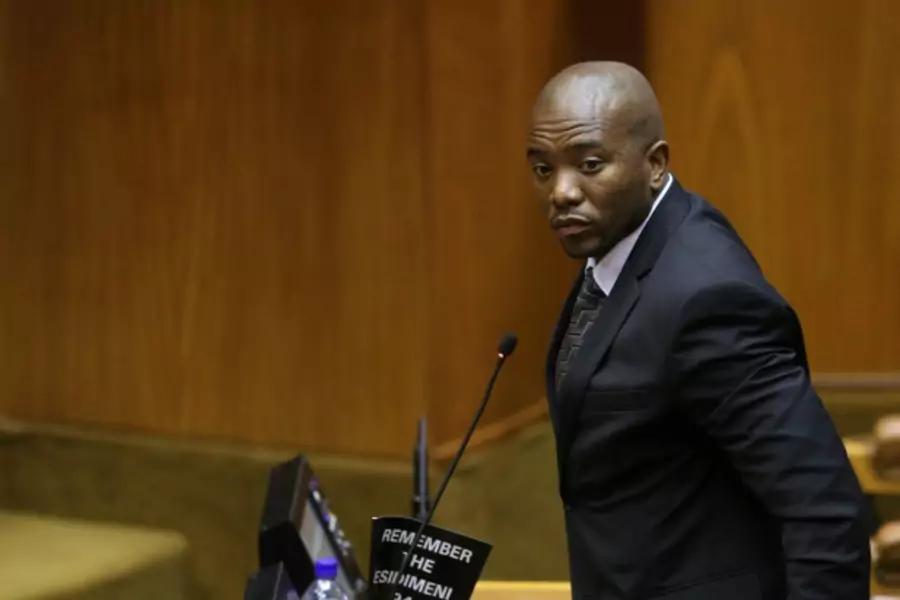South Africa's Democratic Alliance Weathers Twitter Scandal

In a period of economic challenges and political scandals, South Africa’s constitutional and democratic institutions provide an essential rudder. Among those institutions are the opposition parties, chief among them the Democratic Alliance. The official opposition since 1999, its electoral support has grown rapidly, from 16.7 percent of the vote in 2009 to 22.2 percent in 2014. It currently holds 89 of the 400 seats in parliament, while the governing African National Congress (ANC) holds 249. The antecedents of the DA are the predominately white, liberal, and English-speaking parties that were the opposition during apartheid, which was sponsored by the now defunct National Party. Like these early opposition parties, the DA is strongly supportive of the constitution and the rule of law. It is moderately conservative on economic and social policy, and in townships it is perceived as a “white” party.
The DA now commands the electoral support of most racial minorities in South Africa. It is the party of government in the province of the Western Cape and Cape Town, the only part of sub-Saharan Africa where blacks are not a majority. (The largest racial group is the ‘coloureds,’ who usually self-identify as a separate, not mixed, race and tend to support the DA.) To become the party of government in the rest of the country, the DA must win support from some of the black majority, which comprises 80 percent of the population. In order to broaden its appeal, it has selected as party leader Mmusi Maimane, a former member of the Johannesburg city council, and in some local governments, it has formed a tactical alliance with the Economic Freedom Fighters, a radical, black party
More on:
The DA effort to breakout of its racial minority straitjacket is the context for a contretemps involving Helen Zille, former journalist, anti-apartheid activist, the former DA party leader, and currently the premier of the Western Cape. In tweets this spring she said, in essence, that the heritage of colonialism was not all bad, and she rejected the identification of apartheid with the Holocaust. During the ensuing uproar, she declined to apologize. There were calls within and without the DA to expel her from the party, remove her from all party offices, and even eject her from the premiership of the Western Cape. Some within the EFF threatened to end their tactical alliance with the DA. Zille, never prepared to go quietly, raised the specter of lawsuits to preserve her party position.
Mmusi Maimane has since negotiated a compromise. Zille has publicly apologized and given up her party offices. She retains her party membership and her position as premier of the Western Cape, where she remains very popular. Though not certain, there is a good chance that the Zille issue will now go away, to the relief of the DA leadership as they look towards the 2019 elections.
For an American observer, ‘Zillegate’ is curious, akin to “political correctness” gone mad, for Zille has impeccable anti-apartheid credentials. In fact, she was one of the journalists who broke the story of the murder of anti-apartheid icon Steve Biko by police. What she tweeted would appear to be obvious: colonialism was not all bad, and it cannot be compared to the Holocaust. However, a fundamental reality is that democratic South Africa remains a deeply wounded country, by no means having recovered from the consequences of apartheid. Racial identity remains a primary political driver and social and economic change has been glacial. Most of the black majority remain poor, while the 9 percent of the population that is white is mostly middle class or wealthy. Hence anger among blacks at the Zille tweets, and fears over the danger it poses to the DA strategy of broadening its electoral appeal. The question remains why Zille felt it necessary to share her opinions on what surely she knew was a hurtful subject. Some of her critics ascribe it to simple arrogance and insensitivity to the feelings of most of her fellow South Africans.
More on:
 Online Store
Online Store